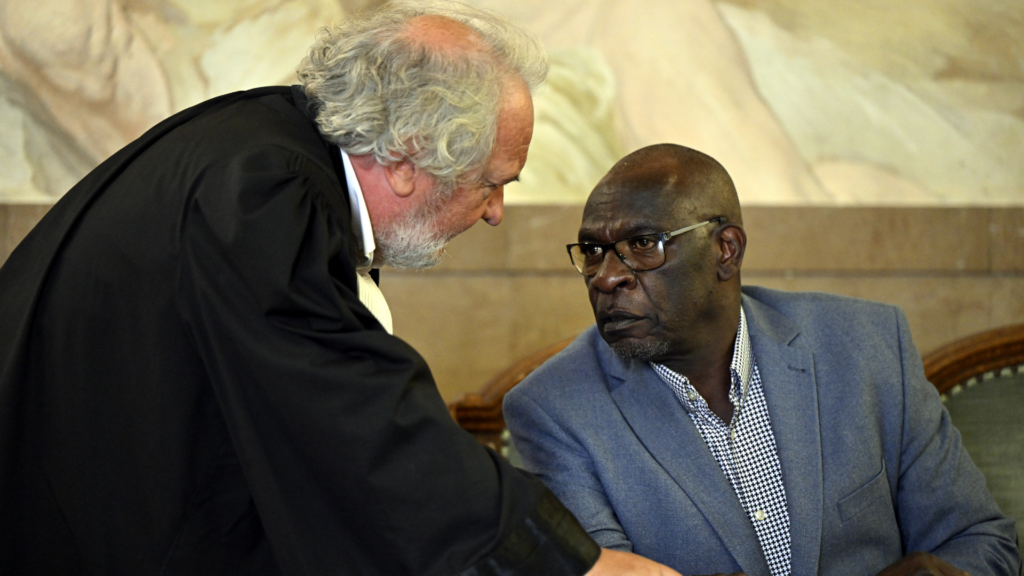For survivors of the 1994 genocide in Rwanda, the memories of the atrocities committed against the East African country’s Tutsi minority and moderates from the majority Hutu ethnic group are all too vivid.
“The grenades, the shots, the screams… It’s all engraved in my memory,” said one of the plaintiffs who testified on Wednesday at the trial of Pierre Basabosé and Séraphin Twahirwa at the Brussels Assize Court.
The two men are accused of war crimes and crimes against humanity.
The victim explained that, at the time of the events, she was living in Burundi, but regularly travelled to neighbouring Rwanda to visit her family, particularly her mother, in the capital Kigali.
She recalled the last time she went there, just before the genocide began on 7 April 1994. “It was a nightmare trip. My mom’s neighbor, who was a cab driver, had been killed. Interahamwe (Hutu militias) had thrown a grenade at her house while she was in the shower,” she recalled.
“The grenades, the shooting, the screams… It’s all engraved in my memory. That whole week was horrible,” she said, referring to corpses littering the gutters. “We didn’t go out,” she added, before concluding: “Genocide is absolute horror.”
She listed the names of all the relatives she lost during the massacres, provoking strong emotion among the many Rwandans present in the courtroom.
Pierre Basabosé, now 76, and Séraphin Twahirwa, 65, are on trial at the Brussels Assize Court for war crimes and crimes against humanity committed in Rwanda in 1994. The two men are suspected of committing at least 56 murders during the genocide, plus at least 13 attempted murders.
Twahirwa, who is also accused of raping 12 women, is suspected of leading the Interahamwe in Kigali. Several witnesses interviewed by Belgian investigators in Rwanda described him as a terrifying and cruel individual.
Basabosé, for his part, is mainly suspected of supplying arms to the Interahamwe. A former soldier and wealthy businessman, he was also one of the shareholders of the notorious Radio Télévision Libre des Mille Collines, which broadcast calls to hatred and murder during the genocide.

